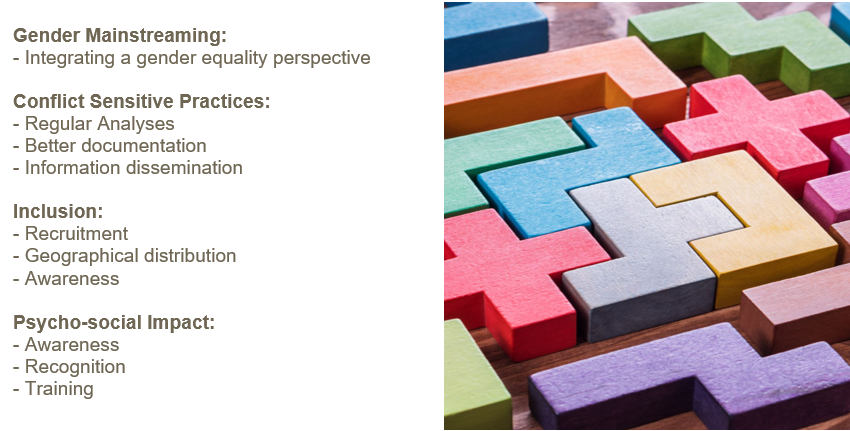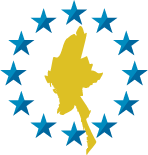EURO-BURMA OFFICE ADDB Inc – Canada, Euro-Burma Office – Belgium, EBO Foundation – Chiang Mai
Partners
EBO mainly works with:
- Decision makers:Government / Members of Parliament & Parliamentary peace committees/ Political Parties/ Community leaders
- Ethnic Armed Organisations (EAOs): Ethnic organizations engaged in armed struggle to achieve a political objective.
- Civil Society Organisations (CSOs): Grassroots and civil society organizations (CBOs & CSOs)/ 88 Generation/ Media organizations/ groups “left out” of the ongoing political process and power configuration in Myanmar: women, youth, ethnic, religious and other disenfranchised communities from Myanmar.
- International Community: Foreign Governments/ International agencies/ Research organizations/ INGOs.
EBO OUTCOME STATEMENT
EBO plans to achieve the following goals with each boundary partner:
- Decision makersparticipate in capacity building (trainings & workshops) and dialogue processes to increase their capacity to interact with the public and stakeholders, to seek their opinions and share knowledge about democratic principles, human rights and the rule of law. They gain the capacity to develop policies in consultation with each other, the public and stakeholders, to implement a political solution to achieve peace and democracy.
- Ethnic Armed Organisations (EAOs)participate in training and consultations that strengthen their capacity to reach a common position amongst themselves concerning the nationwide ceasefire and political dialogue and to negotiate and implement their agreements with the government. EAOs can interact with the general public and political parties strengthening collaboration and cooperation in support of a position to negotiate and implement agreements with the government.
- Civil Society Organisations (CSOs), through participation in training and consultations, have the necessary skills and knowledge to sensitize the public on the peace and democratization processes. They will support the public in expressing their own opinions and interests to be raised with decision-makers and EAOs. CSOs organize workshops, trainings, and consultations with the public and decision-makers/EAOs on emerging issues related to policies, laws, and the peace process. CSOs seek out and share knowledge, processes and experiences with other CSOs to strengthen civil society, especially women and youth. Media organizations participate in capacity building trainings and have the adequate skills and necessary equipment to provide timely and accurate information to the public helping them better understand the peace, democratic and social transformation processes.
- The International Community, foreign governments and INGOs will seek out and use information provided by EBO to develop their policies to support the democratization and peace process and to coordinate their responses and involvement.
EBO – PROGRAMME SUMMARY
1990 – 2000 Highlights:
- International advocacy for democracy in Myanmar (Campaign to make ASSK a democracy icon and household word),
- Advocacy for inclusion of ethnic rights in the campaign for democracy – UNGA resolution for tripartite dialogue (၃ ပွင့်ဆိုင် တွေ့ဆုံ ဆွေးနွေးရေး).
- Advocacy for human rights and gender equality to be recognized by the democracy movement.
- Advocacy for the recognition and acceptance of Rohingya and other minorities.
2001 – 2010 Highlights:
- Initiative for National Reconciliation Programme (NRP),
- Initiative for state-based structures (state and federal constitution drafting processes),
- Initiative for inclusion of civil society and political parties (ENC) in the democracy movement,
- Capacity building of civilian activists – youth, women, and disenfranchised communities.
2011 – 2020 Highlights:
- Facilitating peace talks between the Government of Myanmar and 20 EAOs,
- Maintaining bilateral ceasefires through 32 Liaison Offices of 10 EAOs,
- Initiative for inclusion of disenfranchised minorities, youth, women, civil society and political parties in the peace process (UPDJC),
- Creating state-based safe spaces for dialogue & local coordinating platforms,
- Creating knowledge and understanding of federalism within the democracy movement.
2021 – 2025 Highlights:
- Preserving democratic assets – political parties, civil society and community cohesion,
- Strengthening state-based dialogue and coordinating platforms – political and humanitarian,
- Maintaining peace infrastructures – Liaison Offices of EAOs to protect civilians (IDPs and political refugees),
- Facilitating talks amongst democracy advocates on the process of political transformation,
- International advocacy for democracy in Myanmar,
- Creating knowledge and understanding of federalism and constitutional processes – states, regions, and national, within the democracy movement.

2023 – 2025 Priorities
- Preserving democratic assets – survival of civil society, political actors, communities and meaningful participation in the political process,
- Facilitating talks amongst democracy advocates on finding a political solution to the crisis
- Creating knowledge, capacity and understanding of federalism, the rule of law, and constitutional processes to enable actors to utilize them in finding a political solution.
2023 – 2025 PROGRAMME
Objective 1 – Strengthening Democratic Resilience (to preserve democratic assets)

Objective 2 – Facilitating Conflict Transformation and Policy Advocacy

Objective 3 – Helping actors to Prepare for Future Change Processes

Objective 4 – Strengthening EBO Organizational Capacity

CROSS-CUTTING THEME:

